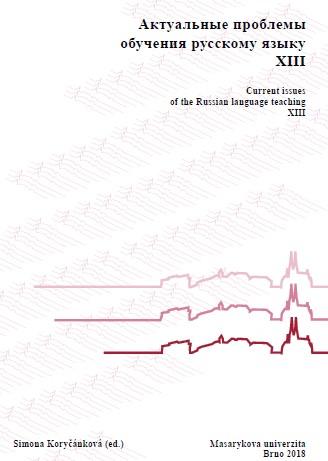ФОРМИРОВАНИЕ СОЦИОЛИНГВИСТИЧЕСКОЙ КОМПЕТЕНЦИИ НА ПРИМЕРЕ ОБУЧЕНИЯ РЕЧЕВОМУ ЭТИКЕТУ В КОНТЕКСТЕ ВЫБРАННЫХ ГИПОТЕЗ УСВОЕНИЯ ИНОСТРАННОГО ЯЗЫКА
THE DEVELOPMENT OF SOCIOLINGUISTIC COMPETENCE ON EXAMPLE OF TEACHING SPEECH ETIQUETTE IN THE CONTEXT OF CHOSEN HYPOTHESIS OF SECOND LANGUAGE ACQUISITION
Author(s): Janina Krejčí
Subject(s): Foreign languages learning, Language acquisition, Sociolinguistics
Published by: Masarykova univerzita nakladatelství
Keywords: sociolinguistic competence; speech etiquette; second language acquisition; monitor model; contrastive analysis hypothesis; noticing hypothesis; interactive hypothesis;
Summary/Abstract: Being one of the important constituents of intercultural communicative competence sociolinguistic competence is the ability to choose linguistic forms and expressions adequate to the particular communication situation. When studying a foreign language, we pay special attention to the formation of sociolinguistic competence of learners and to the acquisition of speech etiquette formulas, which allows learners to establish contact with the interlocutor in accordance with the existing norms of communication. An acquisition of the ability to understand and use a foreign language is the subject of a separate field of study – Second Language Acquisition. This article presents a brief description of the main approaches to the theories of Second Language Acquisition, as well as the formation of sociolinguistic competence and mastering the usage of speech etiquette formulas by the learners in the context of selected hypothesis of Second Language Acquisition.
Book: Актуальные проблемы обучения русскому языку XIII
- Page Range: 141-149
- Page Count: 9
- Publication Year: 2018
- Language: Russian
- Content File-PDF

